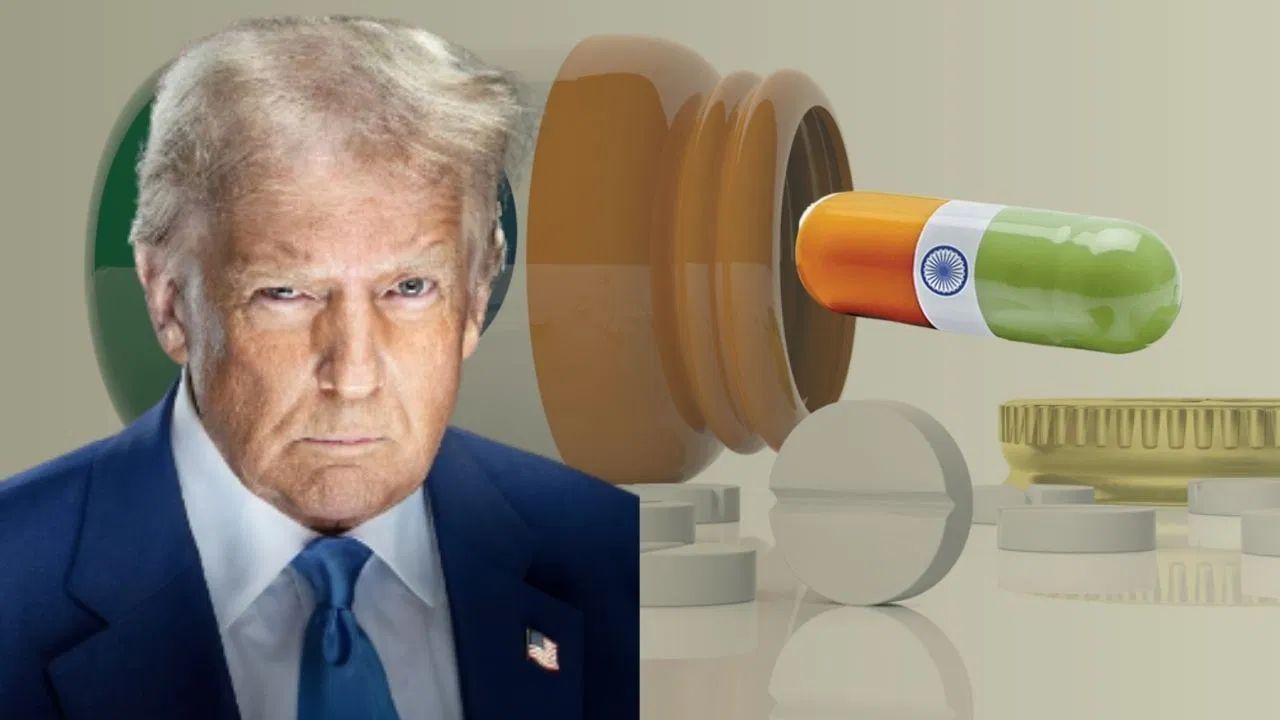US President Donald Trump has indicated that he can increase the tariff on 250 percent percent on the drug import. Which is the largest potential tariff proposed by him so far. In an interview to CNBC, Trump said that he would start with “small tariffs”, but is planning to increase it gradually within a year 18 months-first 150 percent and eventually up to 250 percent. He had proposed to impose 200 per cent tariffs in early July, but it seems that they have increased it. In April, the Trump administration launched an investigation under Section 232 on the drug import. This law allows the US to investigate whether some imports pose a threat to national security.
What do Trump want?
Trump wants to use it as a way to motivate pharmaceutical companies to make more medicines in the US, as domestic production has declined drastically over the years. Major companies like Ellie Lily and Johnson & Johnson have already announced new investment in American facilities to remain in the eyes of Trump. Trump told CNBC that we want medicines to be made in our country. But the proposed tariffs can damage the pharmaceutical industry. Drug manufacturers have warned that this step will increase the cost, investment in the US will be discouraged, supply chains will be interrupted and patients’ lives will be in danger.
Trump’s policy on pharma
Companies are already under pressure from Trump’s aggressive drug pricing policies, which they say that they are damaging their profits and limiting their ability to raise funds for new research. In May, Trump signed an executive order reviving the Controversial “Most Faward Nation” policy, aimed at cutting the prices of drugs by connecting drug prices in the US with much lower prices than other countries.
How can Trump’s policy can harm India
- In addition to clarifying his intentions to impose a tariff of up to 250 per cent on drug imports, Trump also threatened to increase the duty on Indian imports due to New Delhi purchasing Russian oil. Last week, he announced a heavy duty of 25 per cent on India and said that he would soon impose a fine on New Delhi for the purchase of Russian military equipment and energy.
- India, often called the “pharmacy of the world”, considers the United States its biggest market for drug exports. The country’s drug market for FY 2023-24 is US $ 50 billion, with domestic consumption of US $ 23.5 billion and exports at US $ 26.5 billion.
- In FY 2023-24 alone, India exported pharma products worth more than $ 8 billion to the US. In FY 25, the US again emerged as India’s largest drug export destination, where $ 9.8 billion was exported. However, this important business relationship is now in serious threat. If Trump proceeds on its plan to put 250 percent tariffs on imported drugs, then India’s generic industry may get a big shock.
- These tariffs will reduce Indian pharmaceutical manufacturers, especially between cost-sensitive markets and low-income patients in the US, especially Federal Health Schemes, to a large extent the price advantage being received. Due to which contracts and tenders can come out of the hands of Indian companies. Whereas the scope of American pharma companies can increase in this market.
- Many major Indian companies, which are highly dependent on the US market, are particularly affected. Although many companies have installed or planned to expand manufacturing in the US, the transfer period of “one year, perhaps one and a half years” proposed by Trump is quite short to adjust.
- Concerned over Trump’s tariff, Indian drug makers are considering a change and manufacturing reelinement in their portfolio to avoid American tariffs, as they usually work on a average of 5–15 percent of Ebitda margin of 5–15 percent for their original business. If they are unable to put the weight of increased import duty on consumers in the US, then a 1st percent mutual tariff will also make them disrespectful.
What is Trump’s claim
Talking to CNBC on Tuesday, Trump said that he has “implemented” this policy and claimed that it will reduce the cost of drugs – although no official changes have been implemented so far. Last week, Trump also sent letters to 17 major drug manufacturers, in which they were requested to take action by 29 September. He requested them to provide the entire series of their medicines to the Medicade patients at the same low prices, which they take to other developed countries.
